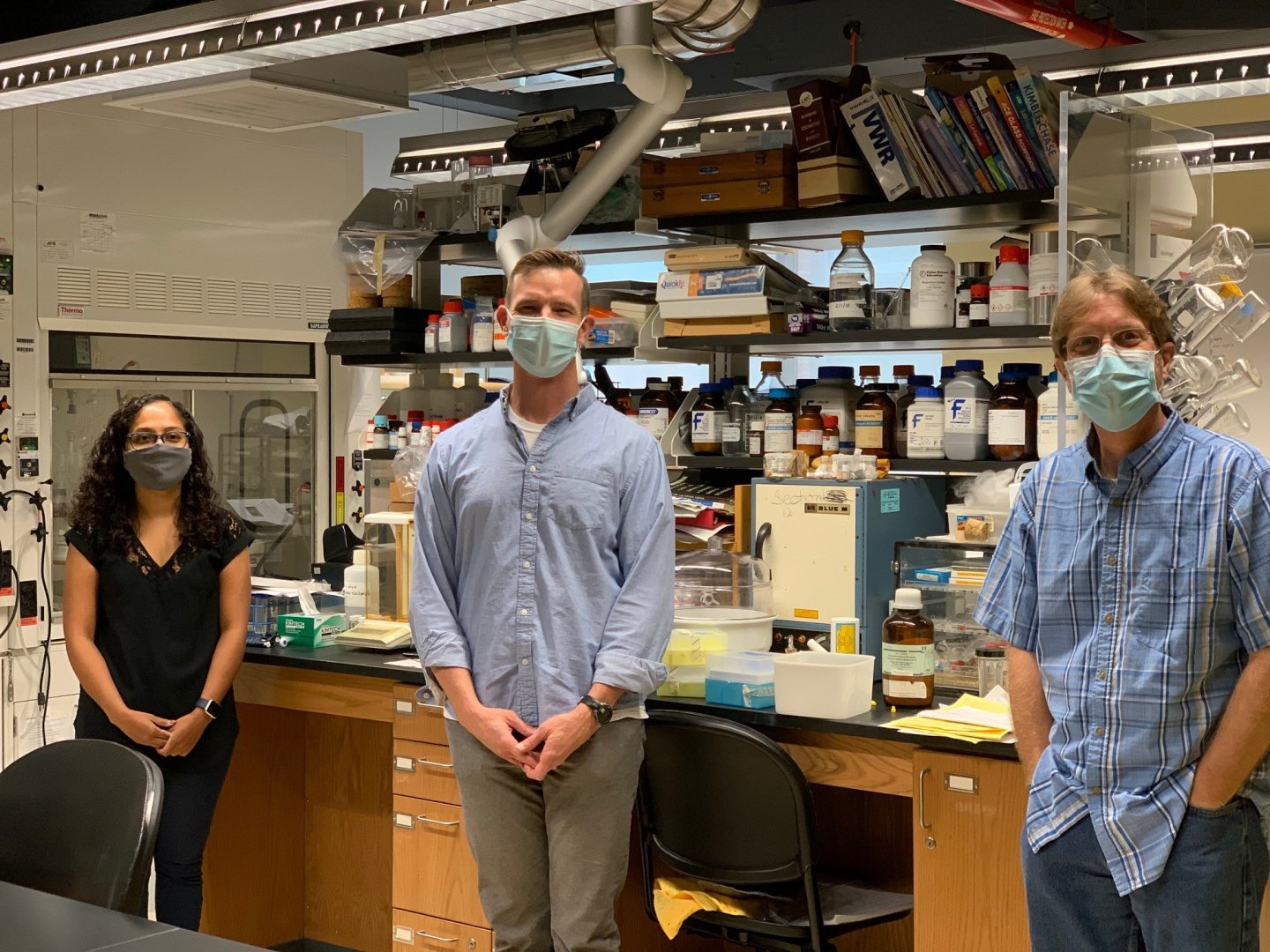Proposal Fall 2020 NSF IUSE Award
Sponsored Research Newsletter Fall 2020

3 Faculty, 3 Years, $300,000

Three Chemistry Department faculty have been awarded $300,000 over 3 years from the National Science Foundation Improving Undergraduate STEM Education (IUSE) Program to conduct STEM education research on a novel approach to teaching chemistry. PI Associate Professor Jeffrey Peterson, Associate Professor Eric Helms and Assistant Professor Rabeka Alam wrote the successful proposal for “Institutionalizing Undergraduate Research throughout the Chemistry Laboratory Curriculum” to develop, implement, and evaluate course-based undergraduate research experience (CURE) curricula.
What makes their project unique is how the professors are incorporating CUREs into not just one course, but into four courses spanning several chemistry subdisciplines in a multi-year, sequenced fashion.
When the faculty team came up with the idea to deliver the in-lab research skills during all four years of the undergraduate chemistry program, they searched the literature to see if this approach had ever been tried before. They found many articles that discussed the benefits of CUREs, but no articles on multi-year sequenced CUREs. Their project will provide the first case-study that implements, documents, and evaluates a holistic CURE laboratory curriculum. It will help answer important questions about the impacts of multi-year CURE experiences on student learning.
The goals of the multi-year CURE project are to transform the chemistry laboratory curriculum to become centered on undergraduate research, and to improve student recruitment, retention, and participation in other undergraduate research experiences, especially students from historically excluded groups. In addition to providing funding for the educational research, equipment, materials, and supplies, the grant will fund the professional workshops at Geneseo, open to all STEM faculty, focusing on evidence-based teaching practices, CUREs, writing intensive courses, and collaborative assignments.
The PIs hope to catalyze broad changes across the chemistry curriculum, thereby improving student engagement, learning, and preparation for graduate studies and the STEM workforce. They anticipate that their three-year project, which begins in September, will help diversify the STEM student-body by attracting and engaging diverse students.
